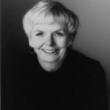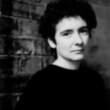The Penelopiad
(Libby/OverDrive eBook, Kindle)
Available Platforms
Description
Excerpt
Similar Series From Novelist
Similar Titles From NoveList
Similar Authors From NoveList
Published Reviews
Publisher's Weekly Review
Drawing on a range of sources, in addition to The Odyssey, Atwood scripts the narrative of Penelope, the faithful and devoted wife of Odysseus and her 12 maids, who were killed upon the master?s return. Atwood proposes striking interpretations of her characters that challenge the patriarchal nature of Greek mythology. The chapters transition between the firsthand account of Penelope and the chorus of maids as listeners are taken from Penelope?s early life to her afterlife. Laural Merlington charmingly delivers the witty and perceptive Penelope with realistic inflection and emphasis. Some of her vocal caricatures seem over the top, but most voices maintain a resemblance to our perceptions of these mythic people. The maids are presented as a saddened chorus by a cloning of Merlington?s voice. These dark figures speak straightforwardly in their accusations of Penelope and Odysseus, while, at other times, they make use of rhyming. This format works well, though sometimes the cadence and rhyming scheme are off beat. This benefits the production by creating an eerie resonance and haunting demeanor that enhances this engaging tale. Simultaneous release with the Canongate hardcover. (Dec.) Copyright 2006 Reed Business Information.
Library Journal Review
Conceived by Canongate publisher Jamie Byng and launched this year by 30 publishers worldwide, this series will offer the retelling of favorite myths by leading authors from A.S. Byatt to Donna Tartt. Armstrong weighs in with a concise (and, one suspects, insightful) history. Byng expects the final volume to appear in 2038. (c) Copyright 2010. Library Journals LLC, a wholly owned subsidiary of Media Source, Inc. No redistribution permitted.
Reviews from GoodReads
Citations
Atwood, M. (2008). The Penelopiad . Canongate Books.
Chicago / Turabian - Author Date Citation, 17th Edition (style guide)Atwood, Margaret. 2008. The Penelopiad. Canongate Books.
Chicago / Turabian - Humanities (Notes and Bibliography) Citation, 17th Edition (style guide)Atwood, Margaret. The Penelopiad Canongate Books, 2008.
Harvard Citation (style guide)Atwood, M. (2008). The penelopiad. Canongate Books.
MLA Citation, 9th Edition (style guide)Atwood, Margaret. The Penelopiad Canongate Books, 2008.
Copy Details
| Collection | Owned | Available | Number of Holds |
|---|---|---|---|
| Libby | 2 | 1 | 1 |


































